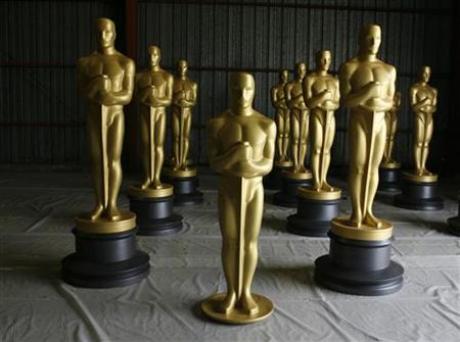


LOS ANGELES - When Summit Entertainment sent out the DVD of "The Hurt Locker" to awards voters, it did so in early December, even though the critically acclaimed war drama had been released theatrically in late June. This was one of numerous decisions that will now impact the movie's Oscar chances.
Was Summit right?
"There is this sort of misperception in the media that we sent out our DVDs late," notes Cynthia Swartz, the PR maven at 42West who is masterminding "Locker's" Oscar strategy. "It wasn't about saving money; when DVDs arrive, it costs the same in September or December. We made a strategic decision."
All across town, studios and indies are making similar calls as they enter the later stages of awards season. In some cases, where it's clear a movie stands little chance of being named best picture at the Oscars -- as with the Weinstein Co.'s "Nine" or Paramount's "The Lovely Bones" -- that means spending less than either studio might otherwise have done.
In other cases, as with "Locker," which scooped a fistful of critics' prizes and then snagged a Producers Guild of America nomination, too, it means adding a final push much larger than Summit may have anticipated when the film was first released -- which is why about 11,000 copies of "Locker's" script have gone out in beautiful, bound editions to members of the Writers Guild of America.
For almost every contender, campaigns change as they enter these last weeks.
"If you have multiple pictures, you shift your resources toward what works," says Bob Berney, president of Apparition, which has "The Young Victoria" in contention for Emily Blunt, but which has effectively seen its other contender, "Bright Star," lose steam.
That's something Sony Pictures Classics is keen to avoid with "An Education," which received a PGA nomination for best picture but failed to be nominated for anything except best actress (drama) at the Golden Globes for Carey Mulligan.
"One thing (that) changes in the strategy -- but it's only a little bit -- is to really emphasize how fantastically directed and written and edited it is," says Sony Classics co-president Michael Barker, pointing to ads that now include more quotes and that emphasize how many other honors the movie has earned.
Sony Classics is also hosting more screenings, with a view to winning over Academy voters. "It's important to understand that, in the Academy, writers vote for writers, directors for directors (etc.), as opposed to journalists voting for these awards (as with the Globes)," Barker continues. "So you make sure everyone has their DVD (and) you make sure Academy members can get in to see the movie in the theaters over the holidays. The key is to get all of the Academy to see your film."
What Barker isn't doing, that he might otherwise have done, is including Globes references in his advertising.
"You don't run an ad that just includes the Globe (nomination for Mulligan)," he says. "You include everything else, like the London film critics, who nominated it for everything -- more than any other movie -- or Rex Reed, (who) named it the best movie of the year, so the impression is: the Golden Globe is not the only thing going for the film."
Barker doesn't discount the importance of the Globes and still plans to use the awards as he moves into the next few weeks. "It's important to have a presence on the show," he says, "because that show is very widely watched."
This presence could mean having one of his stars serve as a presenter, in addition to having Mulligan attend. Of course, if she wins the category -- where she remains a favorite -- you can bet new ads will tout that fact.
Getting Globes nominations is important because it can lead to Oscar nominations. But nominations of all sorts also pull in an audience, and some movies are using the heightened awareness brought about by awards season to lure consumers, as well as Academy members, during these later stages.
"The awards, critical acclaim and top 10 lists allow you to cross over," says Oscilloscope Labs president David Fenkel. "They help reach a broader audience and give (the movie) a stamp of approval: 'It's OK to go see this movie. It was an independent release, but it's also one of the top 10 films of the year.'"
Fenkel decided to open "The Messenger" on November 13 because "we wanted to release it during awards season," he says. "Releasing at that time is going to help the consumer campaign, at the same time as the consumer outreach is going to help with the awards."
"The Messenger" has not yet benefited from major awards, even though its stars, Woody Harrelson and Samantha Morton, were both perceived to be serious contenders, which means it will likely now be pulling back its awards spend.
But the picture that's really gotten hurt by lack of kudos is "Nine."
While the movie received five Globes nominations, it was notably overlooked by the PGA and omitted from many critics' top 10 lists. Earlier, the Weinsteins might have used positive results to whip up enthusiasm for the film; now, they are veering in a different direction and have reoriented their marketing, centering print ads on Penelope Cruz in a sexy outfit, rather than draw attention to the awards race.
The Weinsteins have been experts at turning even middling films into Oscar gold. Their late-phase marketing gave "Shakespeare in Love" an edge over "Saving Private Ryan," and during that time they fine-tuned their campaign to target Oscar voters as far a field as Paris.